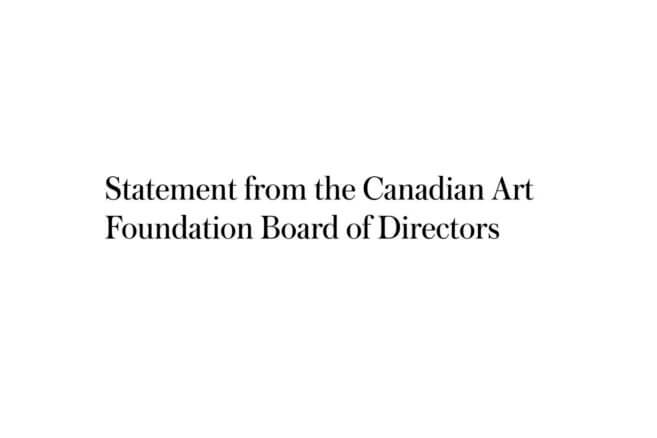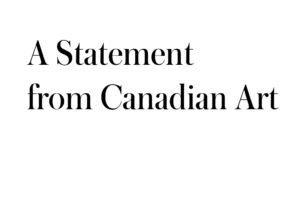Can a comics artist visibly be a mother, too? What deterrents exist to talking about parenthood in graphic-novel form? How can artists help rewrite mainstream narratives around pregnancy and caregiving?
These were some of the questions that came up in the course of conversation at “The Motherhood Challenge”—a panel at the Toronto Comic Arts Festival on May 11.
The panel featured four artists and mothers—Megan Kearney, Lucy Knisley, Sylvia Nickerson and Teresa Wong. It was moderated by Wendy Browne, herself mom to a school-aged child and part of the team at Women Write About Comics.
Megan Kearney, Toronto-based cartoonist and mom to a toddler, said her experience with comics initially left her feeling that “the only place you see moms is as background to more energetic protagonists.”
“I was very anxious about writing about motherhood,” said Kearney on the panel. “I thought ‘I can’t talk about this online. It’ll be a career-sinker.’”
Then Kearney was asked to do Hit Reblog: Comics that Caught Fire with Hope Nicolson for Comixology in 2016. And she ended up drawing several panels of herself with her newborn baby—while, in the studio, she was with her newborn baby.
“I just became insanely ambitious,” says Kearney of the impact of having a child on her work. “I wanted to give that big middle finger to the comics world—‘Look, I can have a kid and write more comics than you!’” In other words, she says, “my form of coping was to work too much—I overcompensated.”

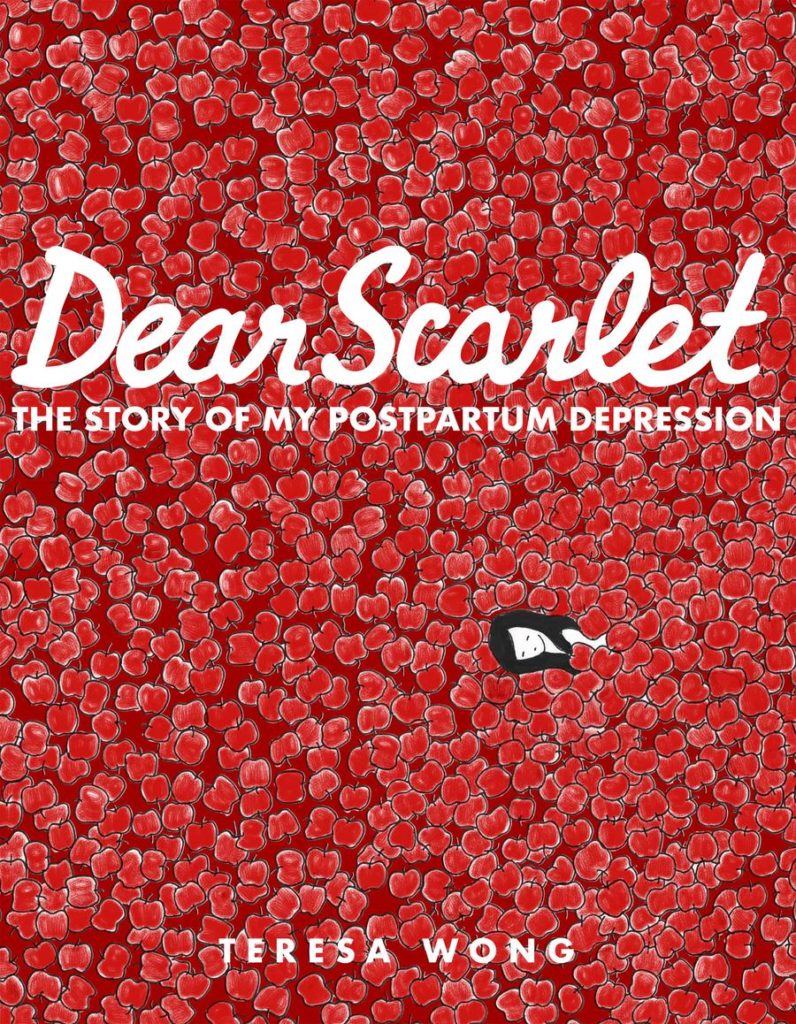 Dear Scarlet is a graphic novel about postpartum depression written by Calgary-based author Teresa Wong. Photo: Arsenal Pulp Press.
Dear Scarlet is a graphic novel about postpartum depression written by Calgary-based author Teresa Wong. Photo: Arsenal Pulp Press.
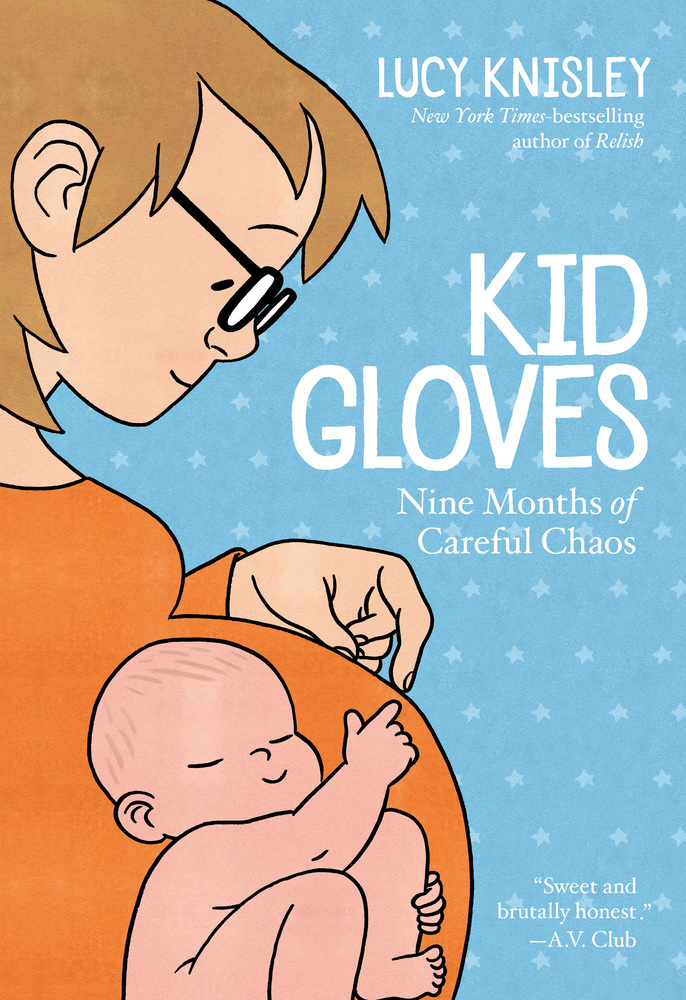 Lucy Knisley's Kid Gloves, recently released by MacMillan, includes tales of miscarriage, perinatal illness, and traumatic birth.
Lucy Knisley's Kid Gloves, recently released by MacMillan, includes tales of miscarriage, perinatal illness, and traumatic birth.
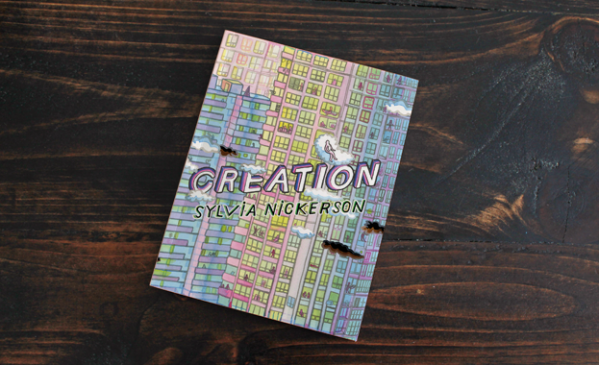 Creation by Sylvia Nickerson, out this fall from Drawn and Quarterly, addresses both parenthood and gentrification.
Creation by Sylvia Nickerson, out this fall from Drawn and Quarterly, addresses both parenthood and gentrification.
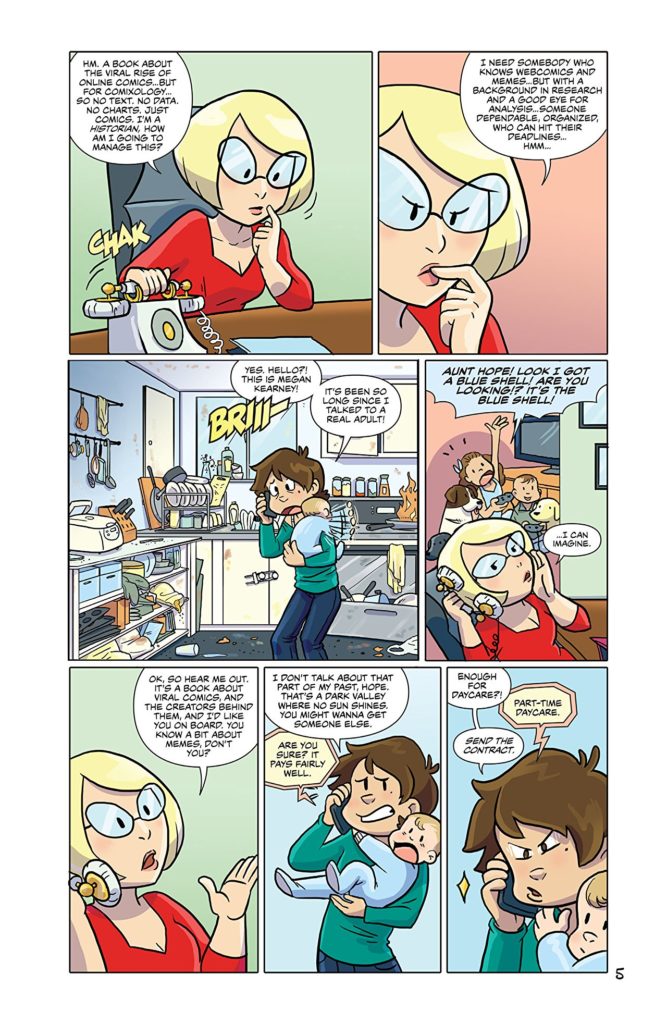 A page from Hit Reblog by Megan Kearney shows her holding her newborn while discussing the book on the phone with her editor. Image: Comixology.
A page from Hit Reblog by Megan Kearney shows her holding her newborn while discussing the book on the phone with her editor. Image: Comixology.
